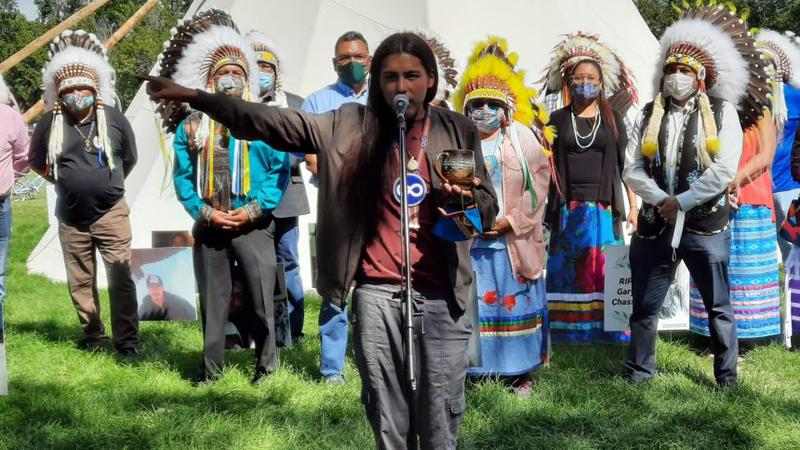
Sask. court rules teepee protest in Wascana Park can stay
The man who set up a teepee as a peaceful protest on the west lawn of Wascana Park in Regina is being allowed to stay.
“I would be jumping up and down, but I’m very hungry right now,” Tristen Durocher told 980 CJME.
“I’m happy that we’re not going to be dragged out of here by the Regina police, who didn’t want to help. I’m happy that the judge decided to rule in our favour.”
Durocher raised his teepee and started a fast at the end of July after walking more than 600 kilometres from La Ronge to the Saskatchewan legislature in protest of the government’s refusal to pass suicide prevention legislation.


